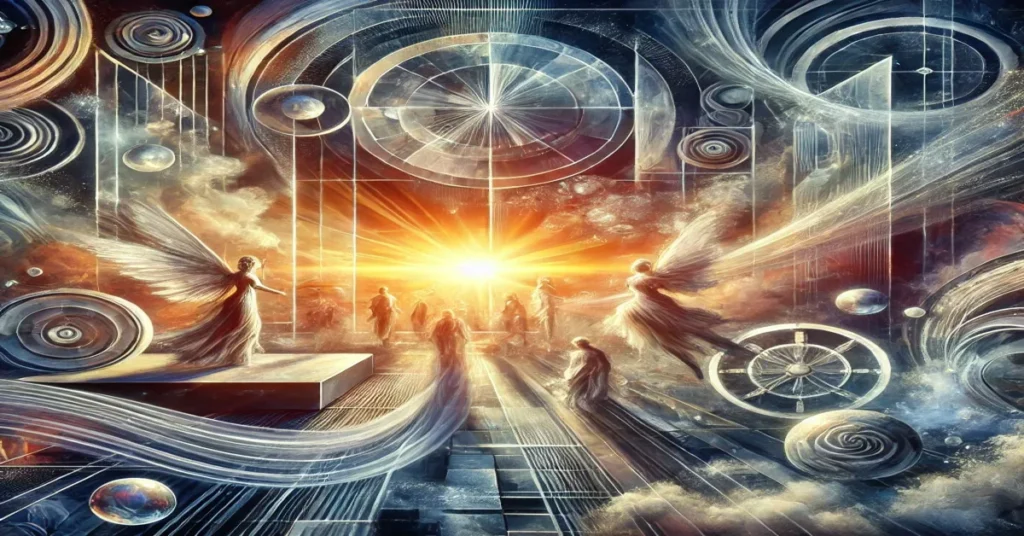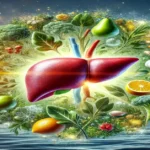“All Tomorrow’s Parties Meaning” is a phrase that carries a poetic resonance, invoking imagery of future gatherings, expectations, and a sense of anticipation. Immortalized as a song by the Velvet Underground, the phrase itself has evolved into a cultural symbol that sparks various interpretations across music, literature, art, and everyday discussions. Its enigmatic nature, blending melancholy with a touch of hope, makes it a versatile metaphor for discussing themes ranging from aspiration and despair to creativity and human connection.
In this article, we delve into the multifaceted meanings of “All Tomorrow’s Parties Meaning,” tracing its origins, cultural significance, and interpretations across different contexts. Whether you’re a fan of the Velvet Underground, a student of literature, or simply intrigued by the allure of the phrase, this exploration will offer fresh insights into its timeless appeal.
Origins of the Phrase
1. The Velvet Underground Song
The most notable origin of “All Tomorrow’s Parties” comes from the 1967 song by the Velvet Underground, featured on their debut album, The Velvet Underground & Nico. Written by Lou Reed and performed by Nico, the song tells the story of a disillusioned woman who wears hand-me-down clothes to extravagant parties. It conveys a sense of longing, alienation, and the fleeting nature of glamour.
The lyrics explore themes of identity, social belonging, and the bittersweet reality of living for the promise of “tomorrow.” The repetitive melody and Nico’s haunting vocals underscore the melancholic tone, making it a defining piece of avant-garde rock.
2. Literary Allusions
The phrase also resonates with literary traditions, evoking ideas of time, inevitability, and the cyclical nature of human experiences. While Reed may not have drawn directly from any specific literary source, “All Tomorrow’s Parties” aligns with themes found in modernist literature, where the passage of time and the human condition are frequently examined. Poets like T.S. Eliot and novelists like Virginia Woolf have touched on similar motifs, blending existential musings with the imagery of social gatherings.
Interpretations and Symbolism
The phrase “All Tomorrow’s Parties” can be interpreted in various ways, depending on the lens through which it is viewed. Below, we unpack some of the common and deeper interpretations.
1. Hope and Aspiration
On one hand, the phrase suggests optimism and hope for the future. Parties, often symbolic of celebration and joy, can represent the endless possibilities of tomorrow. This interpretation resonates with those who see the future as a canvas for aspirations and dreams, where “parties” symbolize life’s rewarding moments.
2. Melancholy and Disillusionment
Contrastingly, “All Tomorrow’s Parties Meaning” can signify the disillusionment that comes with chasing fleeting pleasures or unfulfilled promises. The Velvet Underground song encapsulates this perspective, depicting the protagonist’s longing for a better reality that always seems just out of reach.
The duality of anticipation and despair makes the phrase particularly poignant. It reflects the universal experience of expecting fulfillment in the future, only to grapple with the transient nature of happiness.
3. Time and Transience
The phrase also underscores the transient nature of time. “Tomorrow’s parties” may be exciting, but they are ephemeral, eventually fading into memory. This interpretation ties into philosophical musings about the passage of time, where the future holds both promise and the inevitability of decay.
4. Artistic Freedom and Experimentation
In an artistic context, “All Tomorrow’s Parties” has become a metaphor for the avant-garde, representing innovation, experimentation, and the challenge of societal norms. The Velvet Underground themselves were pioneers in pushing the boundaries of rock music, blending it with art, poetry, and performance.
The title has since been adopted by festivals and art events that celebrate alternative culture, emphasizing creativity and individuality.
Cultural Significance
“All Tomorrow’s Parties” transcends its origins, influencing various forms of art and becoming a symbol of countercultural movements. Below, we explore its cultural footprint.
1. Music
The song’s impact on the music industry is immense. The Velvet Underground’s experimental style paved the way for genres like punk, alternative rock, and indie music. “All Tomorrow’s Parties” has been covered by numerous artists, including Japan and Bryan Ferry, demonstrating its enduring appeal.
2. Festivals
The phrase inspired the name of the “All Tomorrow’s Parties” music festival, held from 1999 to 2016. This festival celebrated non-mainstream artists and cultivated a space for eclectic and experimental performances, echoing the ethos of the Velvet Underground.
3. Literature and Film
The enigmatic quality of the phrase has made it a popular reference in literature and cinema. For example, William Gibson’s novel All Tomorrow’s Parties explores themes of technology, dystopia, and the human condition, drawing a parallel to the song’s exploration of identity and change.
Similarly, films and documentaries often use the phrase to evoke themes of nostalgia, transformation, and the passage of time.
Philosophical Reflections
“All Tomorrow’s Parties” lends itself to deeper philosophical reflections on human existence, including:
- The Pursuit of Happiness: Are we perpetually chasing a better tomorrow, only to overlook the beauty of the present?
- Identity and Society: How do societal expectations shape our aspirations, as seen in the Velvet Underground’s portrayal of the protagonist?
- Art and Individuality: The phrase challenges conventional norms, encouraging creativity and self-expression.
Conclusion
“All Tomorrow’s Parties” is more than just a song or a phrase; it’s a rich tapestry of meanings that continues to resonate across generations. Whether interpreted as a symbol of hope, a critique of societal norms, or a reflection on the transient nature of time, it captures the complexity of human experiences. Its cultural impact, from music and literature to philosophy and art, ensures that its legacy endures.
As we ponder the meaning of “All Tomorrow’s Parties,” we are reminded of the timeless nature of art and the power of language to evoke profound emotions and ideas.
FAQs
1. What is the origin of “All Tomorrow’s Parties”?
The phrase originates from the Velvet Underground’s 1967 song of the same name. Written by Lou Reed and performed by Nico, it explores themes of alienation, longing, and societal expectations.
2. What is the main theme of the song?
The song reflects on the fleeting nature of glamour, identity struggles, and the bittersweet reality of living for the promise of tomorrow. It blends melancholy with a touch of hope, creating a complex emotional narrative.
3. What does “All Tomorrow’s Parties” symbolize?
The phrase symbolizes various ideas, including hope, disillusionment, the passage of time, and artistic freedom. Its meaning can vary depending on the context in which it is interpreted.
4. How has the phrase influenced culture?
“All Tomorrow’s Parties” has inspired music, festivals, literature, and art. It has become a symbol of countercultural movements and continues to resonate in discussions about creativity and individuality.
5. What is the connection between the phrase and the music festival?
The “All Tomorrow’s Parties” music festival, held from 1999 to 2016, celebrated alternative and experimental music. Its name reflects the avant-garde ethos of the Velvet Underground and their song.
6. Why is the phrase still relevant today?
The phrase captures universal themes of aspiration, time, and human emotion. Its adaptability to different contexts and its association with creativity ensure its enduring appeal across generations.







